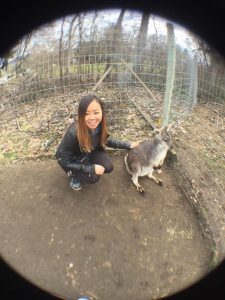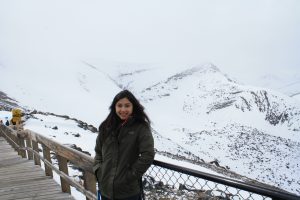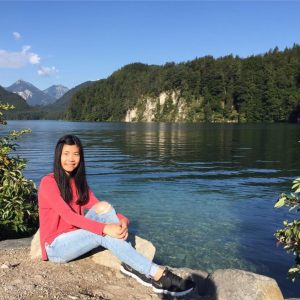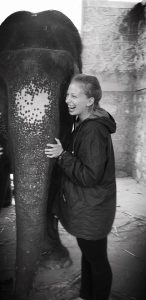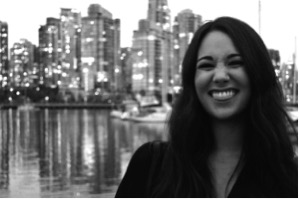Never doubt that a small group of thoughtful, committed, citizens can change the world; indeed, it’s the only thing that ever has – Margaret Mead
Hi there! Here is our second blog post. Please enjoy reading it as it contains some of our plan in Galiano island next week (we’re very excited!).
To start.. here is a PDF version of our group proposal: proposal-report
Weekly Objectives and Achievements
Week 1:
Objectives:
- Introduction of the course syllabus and community projects
- Identify personal goals/interests
Achievements:
- Decided on projects we are interested in and submitted our top choices!
Week 2:
Objectives:
- Planned to introduce ourselves and schedule a meeting to further introduce our project to our community partner, Jane Wolverton
- Decide on ways of communication between group members
- Discuss possible roles that each members can contribute to the project
Achievements:
- Formed a group, exchanged contact informations, and established a platform of communication via Facebook chat
- Formed a team charter
- Introduced ourselves by emailing our community stakeholder, scheduled the meeting for the following week
- Created the Galiano Food Fanatics blog as a way to share our progress
Week 3:
Objectives:
- Decide the dates of our visit to the island and book our ferry tickets
- Consider the approach to the project and our roles in the community – how to approach the community as an outsider
- Be able to have a successful meeting with Jane by doing preparation work beforehand, for example, listing out questions on demographics of Galiano Island to familiarize ourselves with the island
Achievements:
- Met with Jane Wolverton…
- Received a demographic of the island
- Informed us about the citrus workshop
- Discussed additional possible activities and/or ways to interact with the local residents
- Posted our first blog! 🙂
- Booked our ferry tickets!
Week 4:
Objectives:
- Revision of our first blog post
- Divide up the roles for the proposal
- Continue our communication with Jane via email to update her on our progress with the blog post and proposal report
- Brainstorm possible interview questions for the residents of the Galiano Island regarding their food program
Achievements:
- Revised our first blog post according to suggestion from our TA
- Started on drafting the proposal outline
- Emailed Jane our revised blog post
Week 5:
Objectives:
- Finalizing our group proposal
- Schedule a meeting with Jane during our flexible learning session in the following week
Achievements:
- Finalized and submitted our group proposal
- Scheduled the next meeting with Jane (to discuss the itinerary)
- Completed TCPS 2 Tutorial Course on Research Ethics
Week 6:
Objectives:
- Confirm the meeting with Jane – and prepare ourselves with possible questions to ask Jane prior to the meeting
- Finish blog post 2
- Confirm itinerary with Jane during the meeting – and familiarize ourselves with the activities to prepare for appropriate outwear/footwear when we go to Galiano Island
- Be able to discuss our proposal with Jane and get some feedback from a community partner’s perspective
Achievements:
- Blog post 2!
- Met with Jane – discussed our trip to the island and the activities that we will be doing for the weekend (and talked about alternative activities, due to the postponed citrus workshop)
- Confirmed activities on the island:
- visit Daystar market to do survey
- Saturday oct 22: volunteer at the community kitchen and dinner at the local restaurant
- Sunday oct 23: work at school garden and community greenhouse to dig out garden beds and sorting out compost bins. Also a short hike at Montague
- Discussed our proposal and received feedback from Jane
- Booked UBC van and coordinate arrival time
Moment of Significance…
WHAT (An obstacle that occurred)
Successful group work requires a lot of communication, cooperation, and compromising from the team members. During the creation of our proposal, our group was having difficulties working well together. Initially, dividing up the components of the proposal and planning it went very smoothly. However, after few days we realized that there were some discrepancies in our interpretations of the project. For example, there were certain criteria on the proposal that was unclear and hence different interpretations from group members. Since we all come from different backgrounds and share different experiences, we all carry different values. Thus, creating different views. Additionally, our diverse backgrounds contribute to the different work ethics we possess. For example, some of us may prefer to solve problems alone before collaborating, while others choose to collaborate first.
SO WHAT? (Why it happened and what is the significance)
Regardless of all of our members initially being on the same page about our roles and the demands of our Proposal Report, we did not have much opportunity to meet in person and discuss our ideas to gain a more complete perspective on what our vision for the project was. As a result, we were left with difficulties formatting and creating a cohesive flow throughout the paper while also facing time constraints. Though we are satisfied with the final product of our proposal, there would have been value in our group contributing to each section together. This is a topic discussed in Point of View Affects How Science is Done (Bang, Lee, Medin, 2014). The authors use an example about how different genders and cultures researching chimpanzees observe different trends in their behaviours because of the diverse backgrounds of the researchers. To draw parallel to writing our proposal report, our differing experiences combined, could have contributed to a more wholesome and multi-perspective report. In addition to our differing pasts, we also vary in the way we prefer to work. Some of us prefer to write the full report together while some of us enjoy working alone to finish our respective sections. Part of our group has a work ethic that propels them to finish their task far before others, while some of our group likes to work slowly until the project is close to being due. We solve problems differently and each of us have different strengths from the Strength’s Finder Assessment which allows our personalities to complement each other well. When the strengths of each unique trait are acknowledged, these “differences” only make us better as a group.
NOW WHAT? (What we can do to prevent it from happening)
In Tim Harford’s TED talk how messy problems can inspire creativity, he mentioned a sociology study in which students in groups of four were asked to solve murder mystery problems and the groups with a stranger scored much higher than the groups of four friends, the reason being that the stranger added randomness to the group and it inspired creativity which led to more robust solutions. In our case, randomness is maximized since we were all strangers to one another before the project brought us together. We initially experienced awkwardness trying to adjust to each other’s way of approaching problems and felt that different opinions in the group slowed down our progress and decreased efficiency. However, the diverse perspectives provoked more comprehensive and deeper thoughts because they challenged us to examine and improve the logic of our own thought in order for it to make more sense to others. In fact, the diversity in our group greatly enhanced our performance even though we might have felt the opposite. Therefore, we should celebrate our differences which allow us to think out of the box, understand that mind collisions contribute to a successful outcome and listen to one another with an open mind.
Now that we understand each of us have different schedules and obligations, we are going to communicate with each other much earlier in advance about scheduled meeting times and questions about our assignments, other than only relying on the allotted time in tutorial to do extra group work. The diversity of our schedules and backgrounds from previous group projects has further educated us to be better problem solvers. This will be beneficial to the project because it will ensure that we are on the same page in all aspects of the direction of the research and process. In order to actually make use of any of these diversities, group communication is a key requirement for it to work. While we can benefit from all of our different ideas, it’s only beneficial if we participate in active listening in order to effectively incorporate everyone’s idea into the final product. Terry (2013) suggests that during group meetings, we should encourage the exchange of ideas and also perform active listening where one feels acknowledged (p. 2). Therefore, great communication skills such as active listening is one of the most important factor that can contribute to successful and cohesive group work.
Upcoming Objectives and How to Achieve Them:
Preparation for Galiano island visit…
- Strategy:
- Compile questions for survey and finalizing the itinerary with Jane.
- Read through all the activities on the itinerary and make a list of necessary items to bring.
During the island visit…
Collect information throughout the weekend
- Strategy: observations of…
- Variety of available food (at markets, the school, community events, etc)
- Community events and residents involvement
- Natural environment: resources available
- Garbage classification at the school garden (what kind of environmental/sustainability knowledge is incorporated into the curriculum)
- Strategy: interview (semi-structured)
- Chat with residents and bring up the prepared questions when best fit, and probe for more information regarding the objectives of our projects as stated in our proposal
After the island visit…
Analysis of information on Galiano Island
- Strategy: Compile individual notes from the survey conducted at the Daystar market, discuss/analyze the results
Complete blog post 3
- Strategy: Discuss and divide workload between group members, while checking the progress by creating checkpoints at allocated dates before the deadline.
Thanks for checking back to our blog! Stay warm with lots of hot chocolate (or coffee..) 🙂
Reference:
Terry, B.D. (2013). Working in Groups: The Importance of Communication in Developing Trust andCooperation. University of Florida. Retrieved from:https://edis.ifas.ufl.edu/pdffiles/FY/FY137800.pdf
Harford, T. (Speaker). (2015, September). TED Talk. How frustration can make us more creative. Podcast retrieved from: http://www.ted.com/talks/tim_harford_how_messy_problems_can_inspire_creativity
